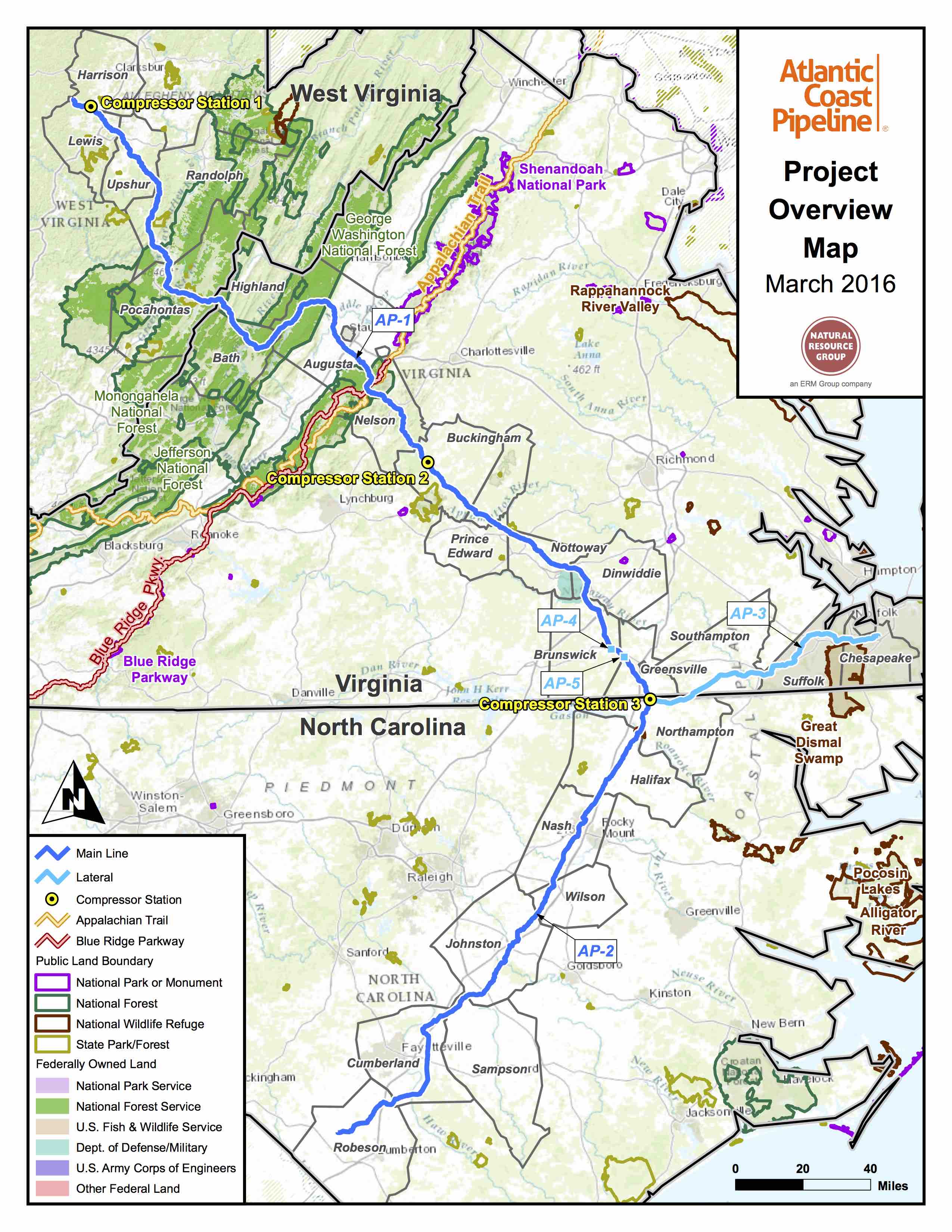North Carolina Regulator: Pipeline Permits Have no Link to Governor's Agreement

RALEIGH, N.C. (AP) — A North Carolina environmental regulator said Tuesday a separate monetary agreement reached by Gov. Roy Cooper’s office with developers of a multistate natural gas pipeline had nothing to do with her department’s decisions on key project permits.
Assistant Secretary for the Environment Sheila Holman answered questions from the General Assembly’s energy policy committee about where things stand on signing off on the Atlantic Coast Pipeline in eastern North Carolina.
GOP legislators have criticized Cooper’s deal in which Dominion Resources, Duke Energy and other utilities would put $57.8 million into an escrow account for environmental mitigation, renewable energy and economic development projects along the pipeline route. Last month, the legislature passed a law taking effect next week to send that money to area school districts instead.
Cooper has strongly rejected Republican arguments that the $57.8 million was a condition for permit approvals. Holman’s comments to Republican questions Tuesday aligned with Cooper’s statements.
Holman said she’s never read the “memorandum of understanding” signed by Cooper’s attorney and a pipeline executive and heard about it sometime in January, well after the permitting process began.
“It didn’t play a role in our work,” she said, adding regulators had no involvement in how the agreement directed how the funds would have been used.
The state Department of Environmental Quality, a Cabinet-level agency where Holman works, has issued a water quality permit for the pipeline, which will run through eight counties, and an air quality permit for the pipeline’s planned compressor station in Northampton County. Some erosion and stormwater control permit applications are pending.
The federal government and regulators in Virginia and West Virginia also have been issuing permits for the pipeline, which will send fracked natural gas from West Virginia to points east and south.
DEQ announced the water quality permit Jan. 26. Within an hour, Cooper’s office announced the memorandum, leading to criticisms by both Republicans and environmental groups opposing the pipeline. Cooper said the payments were voluntary and separate from the regulatory process.
Holman said North Carolina’s permitting process already required pipeline builders to address temporary and permanent environmental harm caused by the pipeline’s construction.
The mitigation included the developers paying more than $6 million to a DEQ program to compensate for unavoidable environmental damage to streams, wetlands and vegetative buffers along river basins. Governments and private-sector companies participate in the program.
Responding to questions by Union County GOP Rep. Dean Arp, Holman said current and future permitting decisions aren’t contingent on whether money in the memorandum is used for environmental mitigation.
“We would not be revoking permits because of the (memorandum of understanding) or failure to pay the MOU,” she said. “I believe that we have adequately addressed the environmental issues under our purview.”
That got the attention of Arp and other GOP members, who questioned why Cooper’s office agreed to additional money for mitigation if more wasn’t necessary.
“I’m even more perplexed,” said Rep. Jimmy Dixon, a Duplin County Republican. “I, for one, hope going forward that there’ll be additional conversations and inquiries into the ‘whys’ and ‘how.'”
Cooper told reporters last month details of how to distribute the memorandum’s funds would have been developed with an eye to transparency and avoiding conflicts. Instead, he said, GOP legislators intercepted money “that was supposed to improve the economy and bring jobs, and lessen the environmental impact for the very communities that were affected” by the pipeline.
Related News
Related News

- Kinder Morgan Proposes 290-Mile Gas Pipeline Expansion Spanning Three States
- Enbridge Plans 86-Mile Pipeline Expansion, Bringing 850 Workers to Northern B.C.
- Intensity, Rainbow Energy to Build 344-Mile Gas Pipeline Across North Dakota
- Tallgrass to Build New Permian-to-Rockies Pipeline, Targets 2028 Startup with 2.4 Bcf Capacity
- U.S. Moves to Block Enterprise Products’ Exports to China Over Security Risk
- U.S. Pipeline Expansion to Add 99 Bcf/d, Mostly for LNG Export, Report Finds
- A Systematic Approach To Ensuring Pipeline Integrity
- 275-Mile Texas-to-Oklahoma Gas Pipeline Enters Open Season
- LNG Canada Start-Up Fails to Lift Gas Prices Amid Supply Glut
- TC Energy’s North Baja Pipeline Expansion Brings Mexico Closer to LNG Exports




Comments